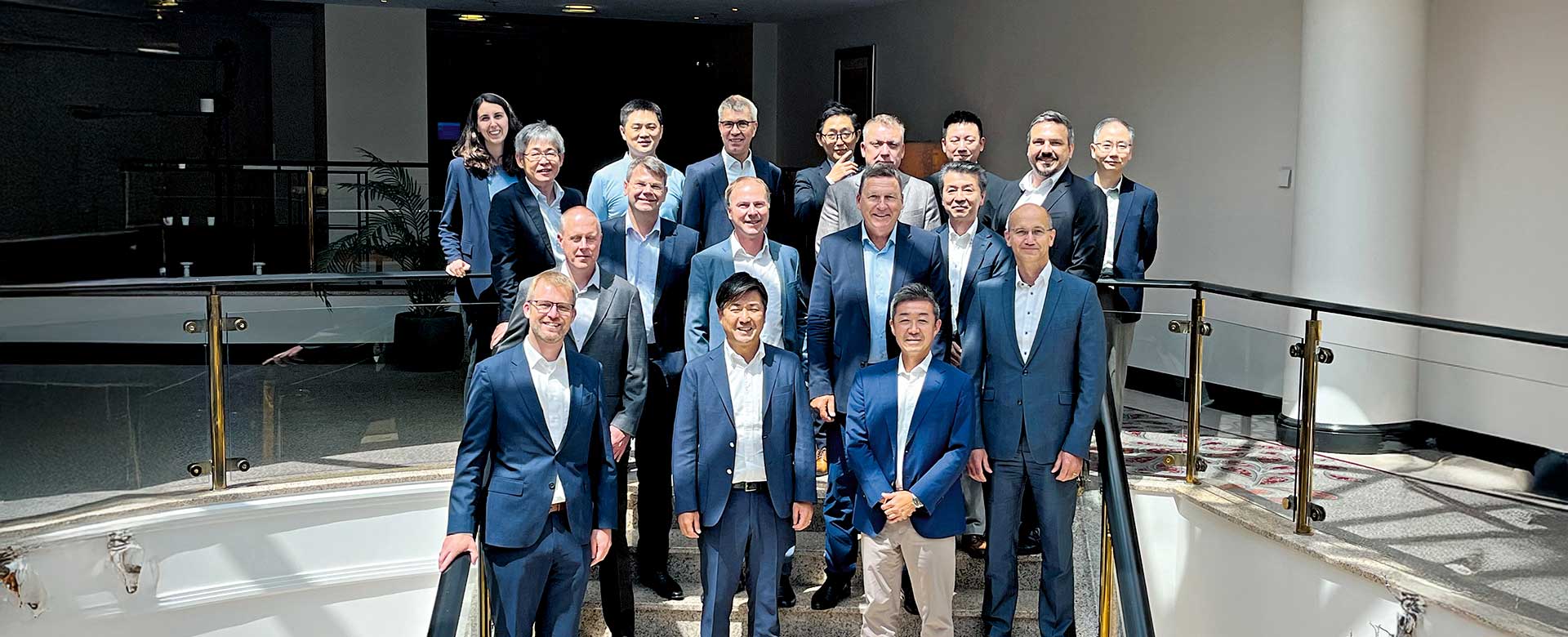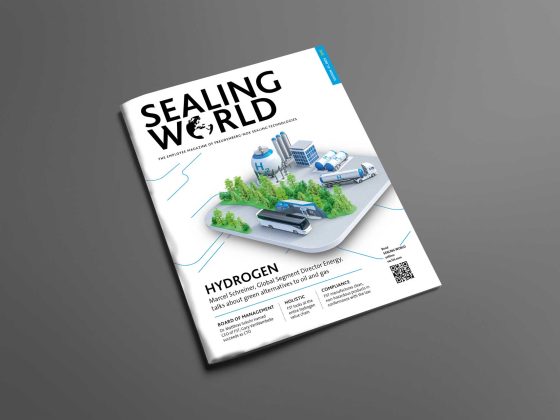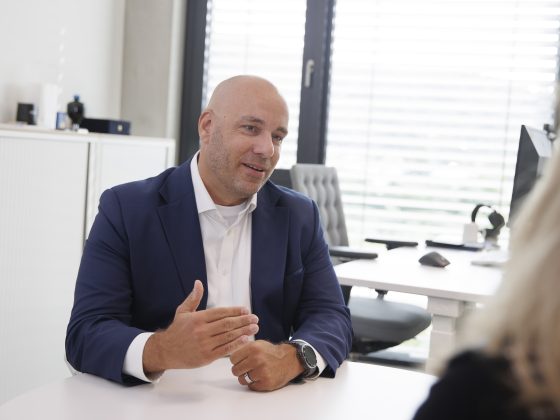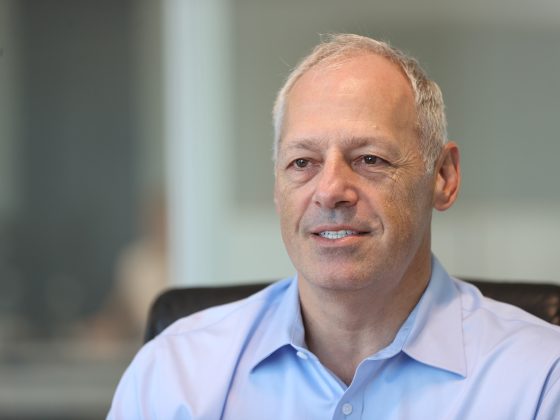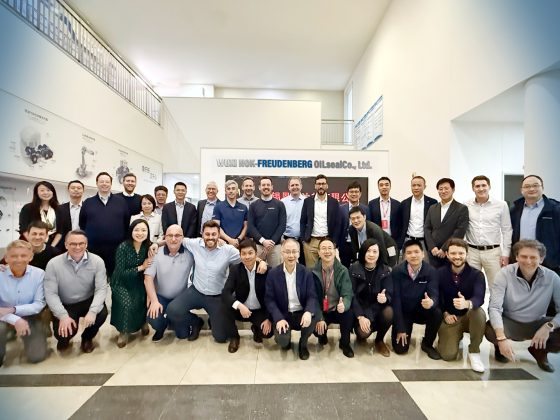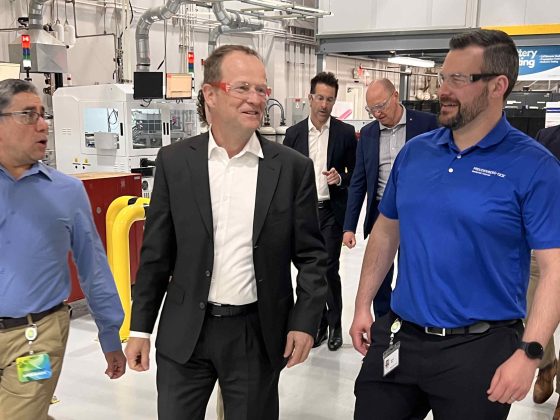A conference with a message: Top executives from Freudenberg Sealing Technologies (FST), NOK Corporation (NOK) and NOK-Freudenberg China (NFC) discuss cooperation on hydrogen technologies.
Whether in the United States, Europe, the Near East, Japan or Australia, the topic of hydrogen (H2) has taken center-stage when it comes to developing sustainable energy supplies for a growing global population in the future. The potential for this up-and-coming market is considerable.
It is no surprise then, that FST and NOK are both deeply involved with these technologies. The situation is similar at their joint venture NFC in China. At each of these companies, the focus is on the production of hydrogen with electrolyzers on one hand, and its use to generate electricity in fuel cells on the other.
But there’s more to it: “We are looking at the issue holistically along the entire value creation chain,” said Marcel Schreiner. He is in charge of FST’s interdisciplinary H2 project, which was created in September 2023. Its core team is led by Dr. Britta Mayerhoefer, Artur Maehne and Juergen Emig. Sealing is not just needed for the cells that are piled into stacks in “small power plants.” It is also needed in compressors, pumps and valves, among other components. In transport and distribution, for example, seals are required for the transformation of hydrogen into ammonia and e-methanol, which are well-suited to transport and storage. Or for the direct combustion of hydrogen in H2-fueled engines.
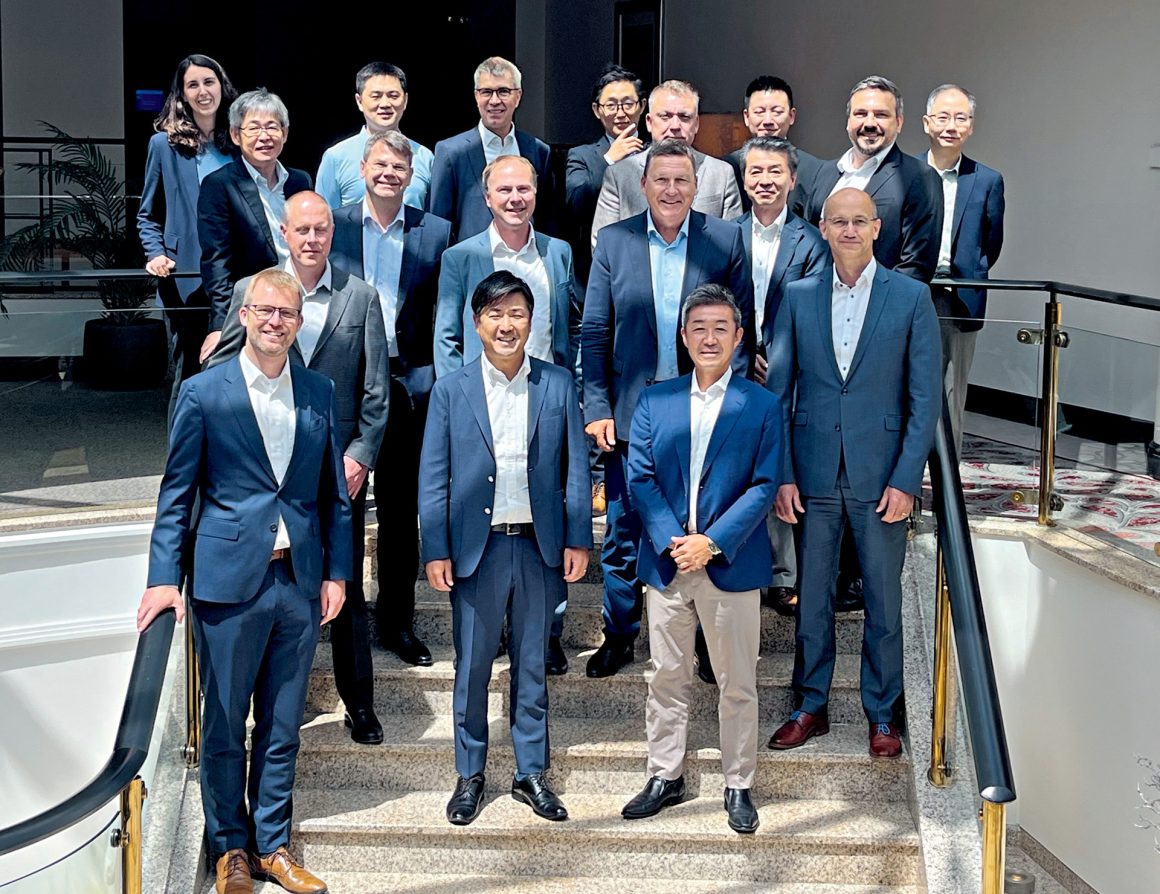
Different Focuses Across Regions
When the top management of partners from FST, NOK and NFC gathered in Munich in early June, the meeting was an opportunity to evaluate current trends and share views and information on requirements and methods in individual joint venture regions. The possibilities for more joint development activities were also explored.
During the presentations, it was clear that the focuses of development in regions around the world vary and complement one another. Two examples stand out: Unlike FST, NOK is independently producing complete bipolar plates, a key component for fuel cell technologies. In turn, NOK could benefit from FST’s material and processing expertise.
The message from the conference: The partners want to intensify their cooperation on hydrogen technologies and forge a global network at the project level. As part of this effort, all three companies have named “key facilitators” for business development, sales and technology. In their respective fields, they serve as contact persons and door openers. The partners’ conviction is that it will take intense preparation and communication at all levels to collectively achieve a leading position in the hydrogen sector. The H2 conference was an important, early milestone in this long-term effort.
The executives also agreed on how to proceed strategically in China. For example, NFC has created a new, technical H2 team that is explicitly devoted to meeting customers’ needs in the Chinese market and addressing its special requirements. So “local for local,” that means that manufacturing sites inside of China are crucial for the success of the market.
Last but not least, the participants were able to gain practical insights into Freudenberg e-Power’s preparations for the launch of series fuel cell production during a tour in Munich.
